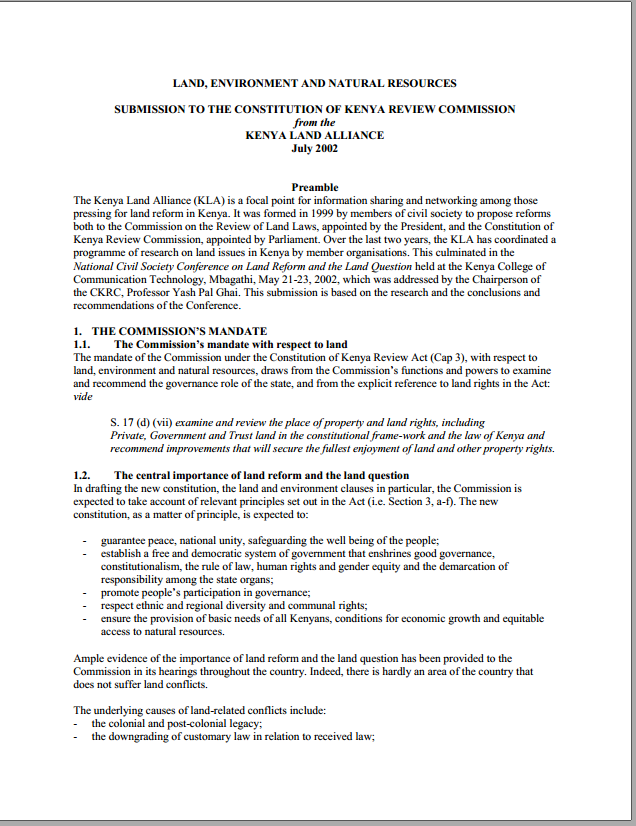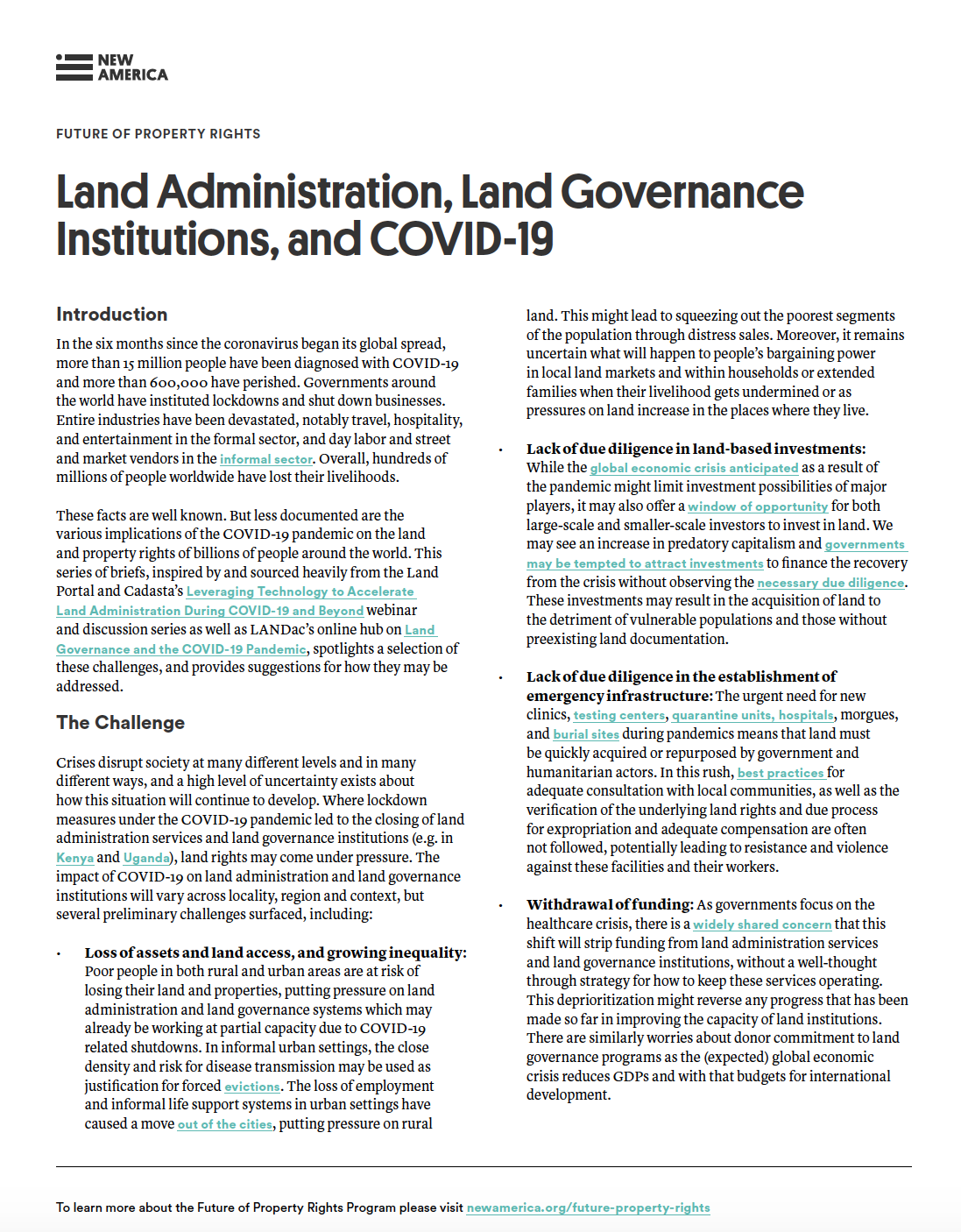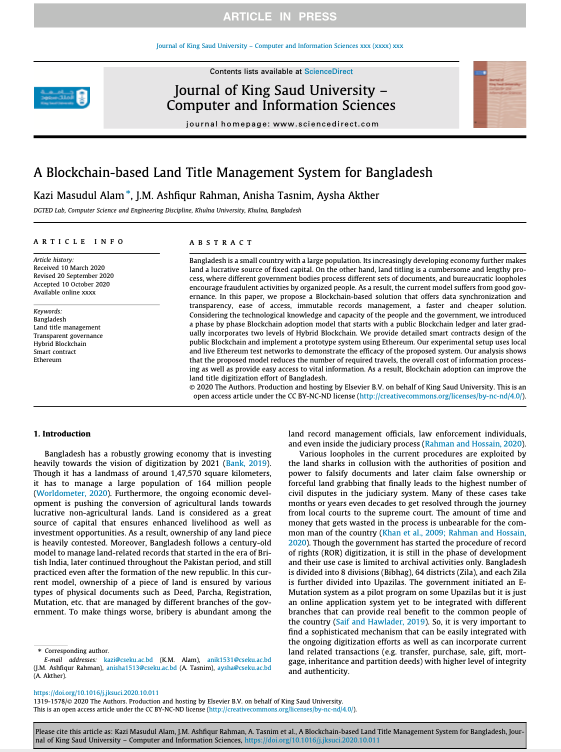Designing a Land Records System for the Poor
Designing a Land Records System for the Poor is the first attempt to fill the gaps in the development of new forms of land recordation to assist the implementation of a continuum of land rights approach at scale. It is about the development of the initial design of a pro-poor land recordation system - a recording system aimed at supporting the recognition and protection of a range of rights of the poor.









